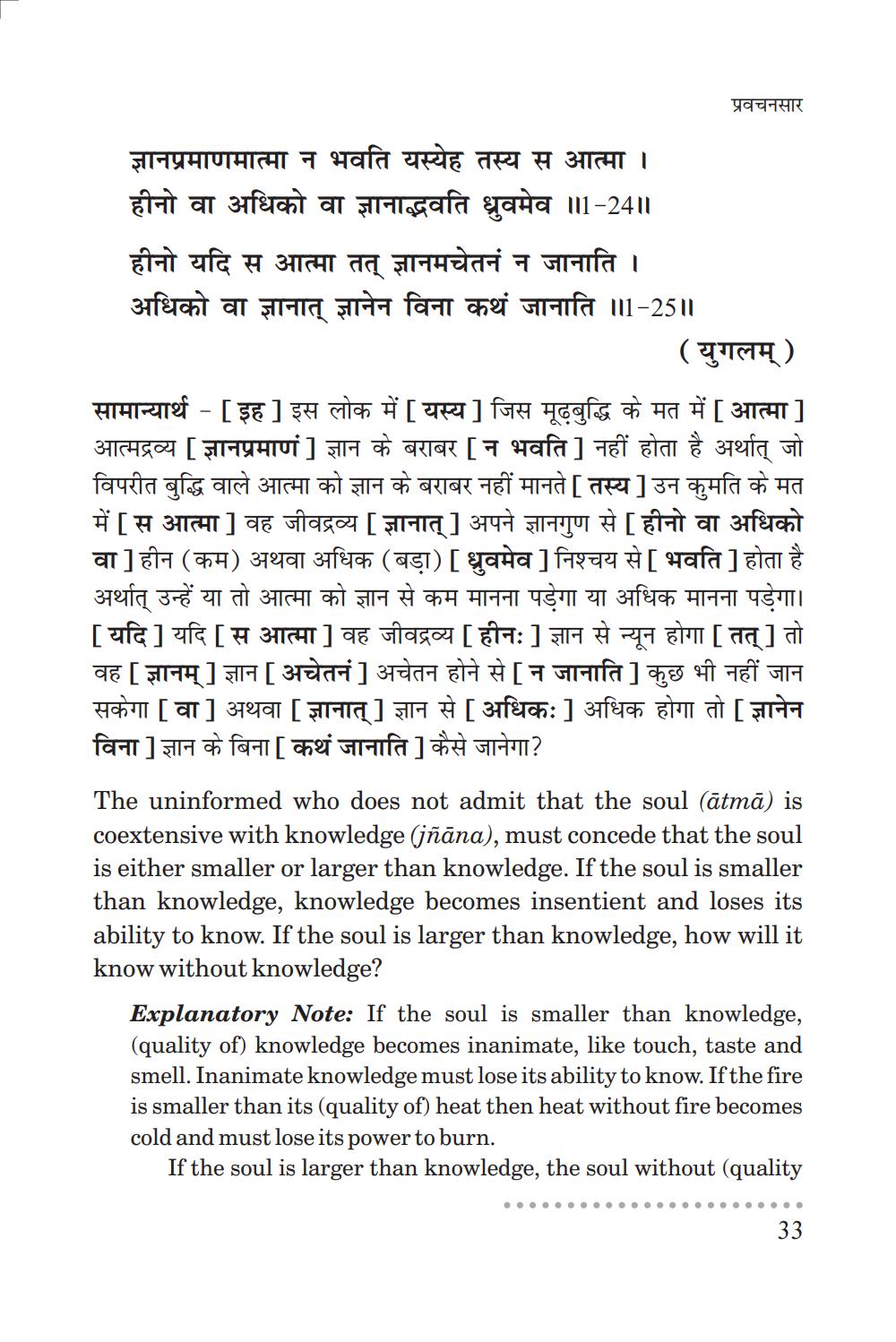________________
प्रवचनसार
ज्ञानप्रमाणमात्मा न भवति यस्येह तस्य स आत्मा । हीनो वा अधिको वा ज्ञानाद्भवति ध्रुवमेव 1-24॥ हीनो यदि स आत्मा तत् ज्ञानमचेतनं न जानाति । अधिको वा ज्ञानात् ज्ञानेन विना कथं जानाति ॥1-25॥
(युगलम्) सामान्यार्थ - [इह ] इस लोक में [यस्य] जिस मूढबुद्धि के मत में [आत्मा] आत्मद्रव्य [ ज्ञानप्रमाणं] ज्ञान के बराबर [ न भवति ] नहीं होता है अर्थात् जो विपरीत बुद्धि वाले आत्मा को ज्ञान के बराबर नहीं मानते [ तस्य] उन कुमति के मत में [स आत्मा ] वह जीवद्रव्य [ ज्ञानात् ] अपने ज्ञानगुण से [हीनो वा अधिको वा] हीन (कम) अथवा अधिक (बड़ा) [ ध्रुवमेव ] निश्चय से [ भवति ] होता है अर्थात् उन्हें या तो आत्मा को ज्ञान से कम मानना पड़ेगा या अधिक मानना पड़ेगा। [ यदि ] यदि [ स आत्मा ] वह जीवद्रव्य [ हीनः ] ज्ञान से न्यून होगा [ तत् ] तो वह [ज्ञानम् ] ज्ञान [अचेतनं] अचेतन होने से [न जानाति ] कुछ भी नहीं जान सकेगा [वा ] अथवा [ ज्ञानात् ] ज्ञान से [अधिकः ] अधिक होगा तो [ ज्ञानेन विना ] ज्ञान के बिना [कथं जानाति ] कैसे जानेगा?
The uninformed who does not admit that the soul (ātmā) is coextensive with knowledge (jñāna), must concede that the soul is either smaller or larger than knowledge. If the soul is smaller than knowledge, knowledge becomes insentient and loses its ability to know. If the soul is larger than knowledge, how will it know without knowledge?
Explanatory Note: If the soul is smaller than knowledge, (quality of) knowledge becomes inanimate, like touch, taste and smell. Inanimate knowledge must lose its ability to know. If the fire is smaller than its (quality of) heat then heat without fire becomes cold and must lose its power to burn.
If the soul is larger than knowledge, the soul without (quality




